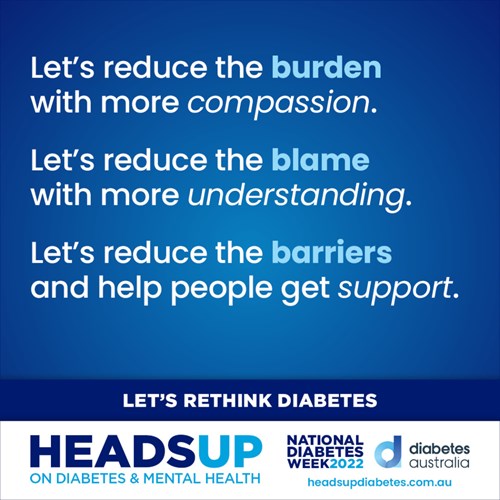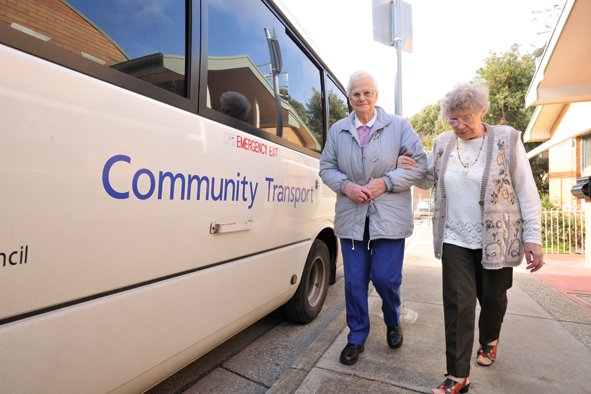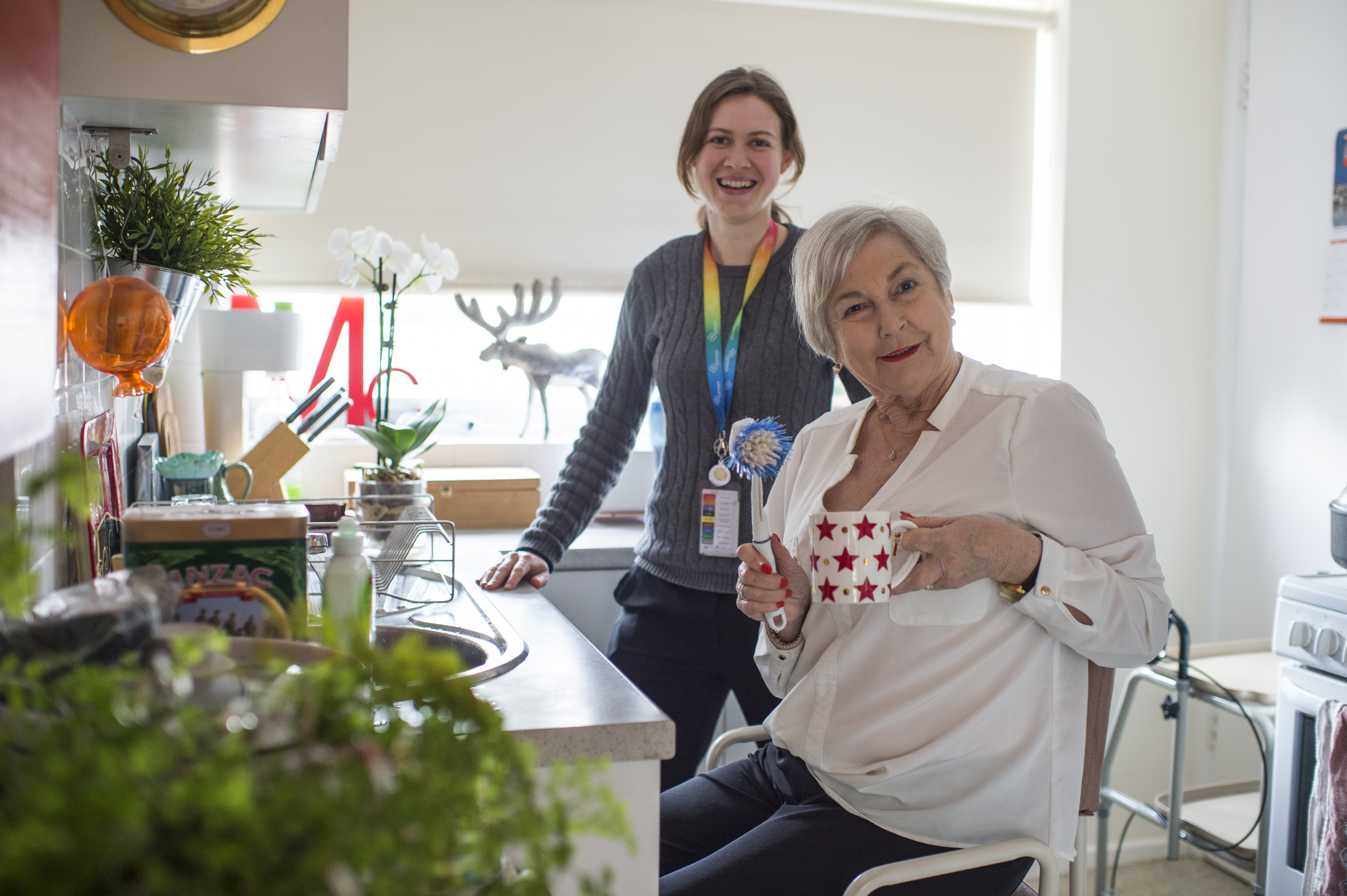Select from the following services
National Diabetes Week 2022 is from 10-16 July and aims to raise awareness and understanding of diabetes.
This is the third year of the 'Heads Up on Diabetes' campaign, which calls people to rethink their perception of diabetes and focus on the emotional health and well-being of people living with diabetes.

As well as the mental and physical challenges experiences by those living with diabetes, many also experience blame and shame due to misinformation and face barriers to support.
There are many myths, misinformation and misconceptions about diabetes, and education and awareness helps break these down.
Diabetes is a chronic disease that occurs when the body is unable to convert blood sugar, or glucose, into energy. Insulin is an essential hormone that converts glucose into energy and is required for our bodies to work properly.
People with diabetes either do not produce insulin, or do not produce it in sufficient amounts on their own. Instead of being converted into energy, the glucose stays in the blood resulting in high blood sugar levels. Blood sugar at high levels can damage the blood vessels and nerves in your body.
The exact cause of diabetes is unknown and varies case to case, but genetic and environmental factors can play a part.
It's important to remember that both types are serious conditions which can lead to serious health complications. People with diabetes are encouraged to seek support to help them manage their condition.
What are the symptoms of diabetes?
With type 1 diabetes, symptoms often appear quickly and can be life threatening. With Type 2 diabetes, symptoms may be difficult to spot as they can appear more gradually. Some people may have no symptoms at all.
Some common symptoms for diabetes include:
A youth mental health initiative developed with students during Victoria’s lockdowns, is hoped to help reduce the stigma surrounding mental health issues and encourage teens to seek help early.
Read MoreOur Health Promotion team is supporting early learning centers through the Achievement Program, an initiative that helps services create a healthier environment for their students, staff and families.
Read MoreThis Children’s Week, we asked our paediatric team to share some of their favourite activities for kids that embrace the importance of play for a healthy lifestyle.
Read More
Speech pathologists provide assessment and management of communication, swallowing and feeding difficulties.
Read More
We have been offering safe and quality door-to-door transport options to our community since 1975.
Read More
We provide Occupational Therapy to help children, adults and those experiencing mental health issues, to achieve their full potential.
Read MoreSelect from the following services